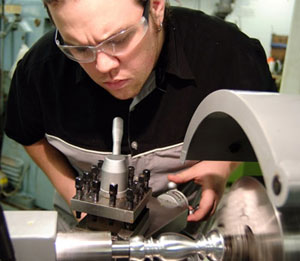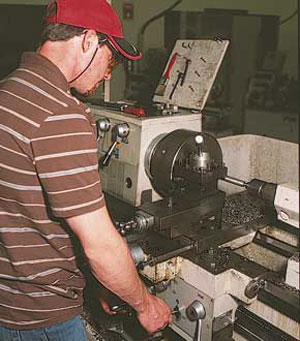Engineering Machinist and Toolmaker
Tasks & duties

Engineering machinists and toolmakers may do some or all of the following:
-
study the client's drawings and instructions
-
design tools and equipment on the computer using computer-aided design (CAD) software
-
select the metal or plastic to be used
-
measure and mark the metal or plastic pieces
-
set and operate machines to cut and shape the metal or plastic
-
check measurements
-
put the tool parts together
-
test the tool
-
make modifications to the tool
-
polish and harden the tool
-
maintain and repair tools
-
maintain machinery used for making tools
Skills & knowledge

Engineering machinists and toolmakers need to have:
-
knowledge of tool and instrument construction
-
knowledge of the properties of metals and plastics
-
the ability to read and interpret plans and drawings
-
practical skills to operate computer-controlled machinery
-
analytical and problem-solving skills
-
maths skills
-
excellent communication skills
-
planning and organisational ability
-
good computer skills, including the ability to use computer-aided design (CAD) software
Entry requirements
To become an engineering machinist and toolmaker you need to complete an apprenticeship and gain a National Certificate in Engineering Machining and Toolmaking Level 4.
Engineering machinist and toolmaker apprenticeships are part of the Modern Apprenticeships Scheme, which is for people aged 16-21.
Secondary education
There are no specific secondary education requirements but Sixth Form Certificate or NCEA equivalent English, maths, technical drawing and workshop technology is preferred.
Training on the job
Engineering machinists and toolmakers may attend training courses to learn about new products and machinery.
Useful experience
Useful experience for engineering machinists and toolmakers includes work with tools, engineering work, or mechanical work such as machinery repairs.
Related courses
Mechanical Engineering
Metal Fitting, Turning and Machining
Toolmaking
For more information, please refer to Career Services.
Document Actions
